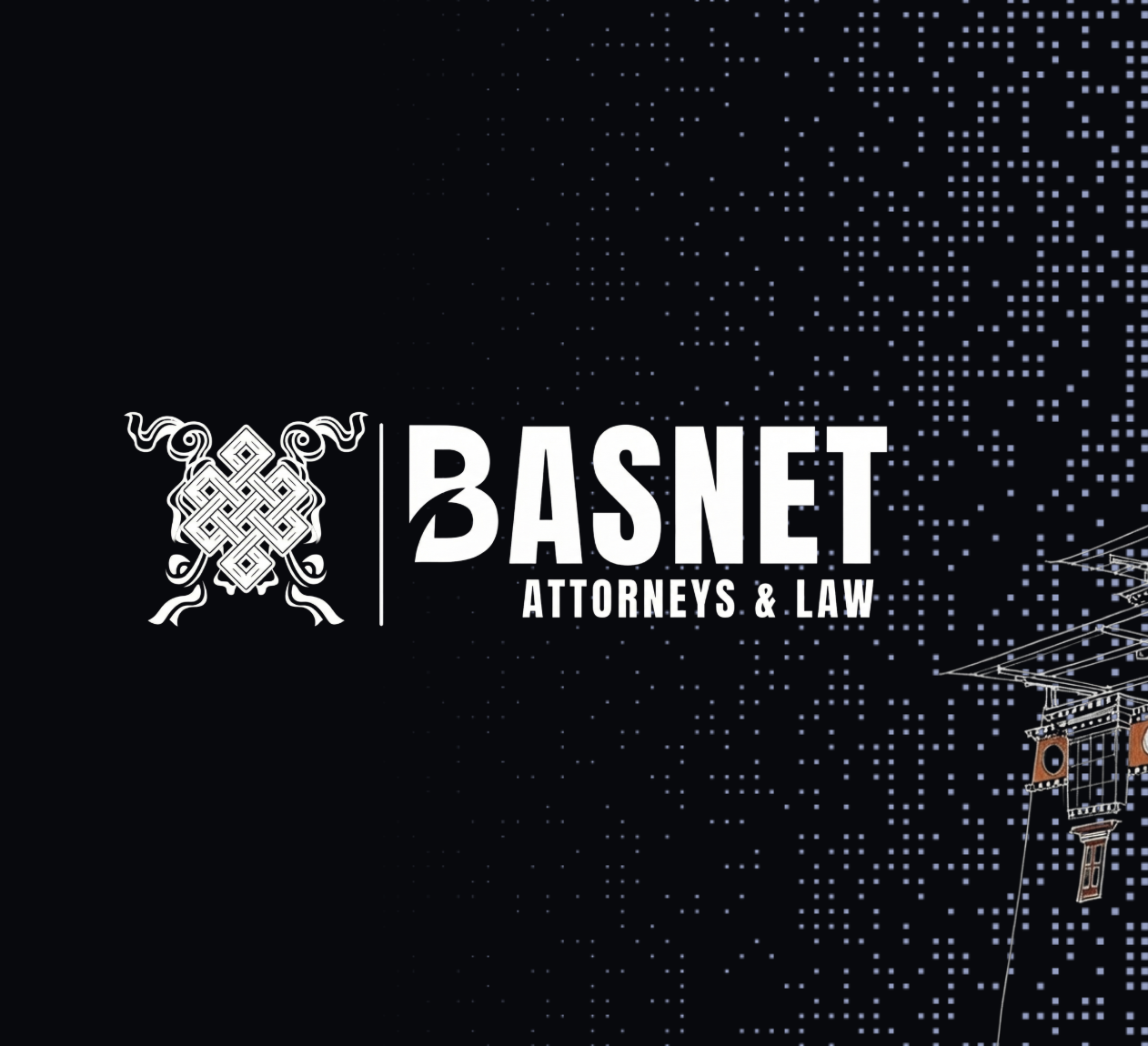Best Corporate & Commercial Lawyers in Thimphu
Share your needs with us, get contacted by law firms.
Free. Takes 2 min.
List of the best lawyers in Thimphu, Bhutan

Basnet Attorneys and Law - A Premier law Firm in Bhutan
15 minutes Free ConsultationAbout Corporate & Commercial Law in Thimphu, Bhutan
Corporate and Commercial law in Thimphu, Bhutan, covers the legal framework governing business organizations, commercial transactions, and the conduct of trade and commerce within the city and the country as a whole. This area of law includes the formation, operation, merger, acquisition, and dissolution of companies, as well as matters related to contracts, intellectual property, employment, foreign investments, and regulatory compliance. Business activity in Thimphu, as the capital city, is subject to national legislation and various local bylaws, with relevant oversight provided by governmental bodies such as the Ministry of Economic Affairs and the Registrar of Companies. The legal framework is evolving in response to Bhutan's economic development and increasing foreign interest.
Why You May Need a Lawyer
Seeking the help of a corporate and commercial lawyer in Thimphu is essential for several reasons. Entrepreneurs and established businesses often require guidance for company incorporation, drafting or reviewing contracts, ensuring compliance with regulations, and resolving disputes. A lawyer's assistance is particularly important during mergers and acquisitions, restructuring, negotiating with investors, handling employment matters, and dealing with intellectual property rights. Additionally, individuals and businesses looking to engage with foreign partners or expand internationally need legal advice regarding cross-border trade, joint ventures, and the protections provided under Bhutanese law. Legal expertise helps to minimize risks and avoid costly mistakes in complex business dealings.
Local Laws Overview
Bhutan's corporate and commercial legal landscape is primarily shaped by the Companies Act of Bhutan 2016, which sets out the requirements for company formation, governance, and reporting. The Foreign Direct Investment (FDI) Policy governs the participation of international investors, outlining ownership restrictions, sector-specific rules, and approval processes. Contractual relationships are regulated by the Contract Act of Bhutan 2013, which details the formation and enforcement of agreements. Taxation issues are governed by the Income Tax Act and other tax laws, while labor matters fall under the Labour and Employment Act. Compliance with these laws is crucial for any business operating in Thimphu, and there are strict penalties for violations. The government also places an emphasis on responsible business conduct, environmental obligations, and transparency.
Frequently Asked Questions
What are the steps to register a company in Thimphu?
Company registration in Thimphu involves reserving a company name, preparing constitutional documents, filing an application with the Office of the Registrar of Companies, paying required fees, and obtaining relevant sectoral approvals if necessary. The process is overseen by the Ministry of Economic Affairs.
Can foreign nationals or entities own a business in Bhutan?
Yes, subject to the conditions outlined in the FDI Policy. There are ownership caps in certain sectors and approval must be sought from relevant authorities. Investment is generally encouraged in sectors such as information technology, hospitality, and sustainable ventures.
What types of business entities can be formed in Thimphu?
The main types are private limited companies, public limited companies, partnerships, and sole proprietorships. Each has distinct formation requirements, liability structures, and reporting obligations.
What tax obligations do businesses have in Thimphu?
Businesses must register for tax, keep proper accounts, file annual returns, and pay corporate or personal taxes as required. Specific rates and exemptions are set under the Income Tax Act and related regulations.
Which laws govern employment matters in corporate settings?
Employment relationships are primarily governed by the Labour and Employment Act of Bhutan. The law addresses contracts, working conditions, termination, and dispute resolution.
What should I know about drafting or signing contracts?
Contracts must comply with the Contract Act of Bhutan, which requires clear intention, capacity, consideration, and lawful objectives. Proper drafting is essential to avoid disputes and ensure enforceability.
How are disputes between businesses resolved in Thimphu?
Disputes may be settled through negotiation, mediation, arbitration, or litigation. Commercial disputes are often taken to the Bhutanese courts, but alternative dispute resolution methods are gaining popularity for their efficiency.
What are my responsibilities regarding regulatory compliance?
Businesses are required to adhere to sectoral regulations, annual reporting, environmental obligations, and anti-money laundering laws. Non-compliance can result in penalties, suspension, or even closure of business operations.
Is intellectual property protection available for businesses in Bhutan?
Yes, protection is available for trademarks, copyrights, industrial designs, and patents, subject to registration with relevant government bodies. Intellectual property rights can be important assets for businesses.
Can I get legal advice from government agencies directly?
While some government bodies provide general guidance or information, specific legal advice and representation should be sought from a qualified lawyer specializing in corporate and commercial law.
Additional Resources
Useful resources for corporate and commercial matters in Thimphu include:
- Office of the Registrar of Companies - For company formation, records, and compliance matters
- Ministry of Economic Affairs - Guidance on business policy, investment, trade, and sectoral regulations
- Royal Court of Justice - For dispute resolution and access to legal procedures
- Department of Revenue and Customs - For tax registration and compliance information
- Bhutan Chamber of Commerce and Industry - For business support services and networking
- Department of Intellectual Property - For trademark, patent, and copyright registration
Next Steps
If you require legal assistance for any corporate or commercial issue in Thimphu, start by gathering all relevant documents such as registration certificates, contracts, financial statements, and correspondence. Identify your specific legal needs, such as company formation, contract drafting, or dispute resolution. It is advisable to consult with a lawyer who specializes in corporate and commercial law in Bhutan for personalized advice. Schedule a consultation to discuss your concerns and understand possible options. Being proactive and well-informed can help secure your business interests and ensure compliance with Bhutanese laws.
Lawzana helps you find the best lawyers and law firms in Thimphu through a curated and pre-screened list of qualified legal professionals. Our platform offers rankings and detailed profiles of attorneys and law firms, allowing you to compare based on practice areas, including Corporate & Commercial, experience, and client feedback.
Each profile includes a description of the firm's areas of practice, client reviews, team members and partners, year of establishment, spoken languages, office locations, contact information, social media presence, and any published articles or resources. Most firms on our platform speak English and are experienced in both local and international legal matters.
Get a quote from top-rated law firms in Thimphu, Bhutan — quickly, securely, and without unnecessary hassle.
Disclaimer:
The information provided on this page is for general informational purposes only and does not constitute legal advice. While we strive to ensure the accuracy and relevance of the content, legal information may change over time, and interpretations of the law can vary. You should always consult with a qualified legal professional for advice specific to your situation.
We disclaim all liability for actions taken or not taken based on the content of this page. If you believe any information is incorrect or outdated, please contact us, and we will review and update it where appropriate.
Browse corporate & commercial law firms by service in Thimphu, Bhutan
Thimphu, Bhutan Attorneys in related practice areas.










